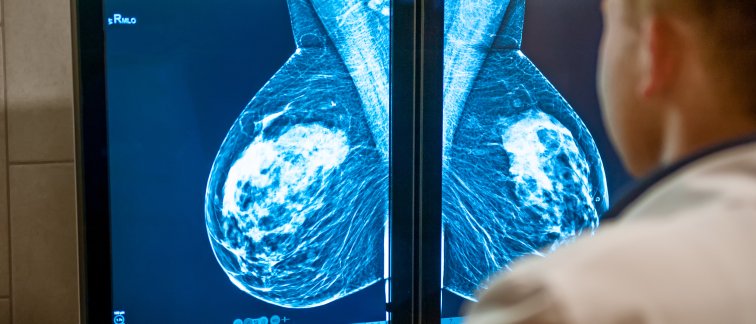In women with metastatic, hormone-sensitive breast cancer, so-called CDK4/6 inhibitors can enhance the effect of hormonal therapy. In many countries, CDK4/6 inhibitors (abemaciclib, palbociclib and ribociclib) are therefore prescribed as starting treatment. Does starting the combination right away work best, or is starting later just as effective? The SONIA study found that it does not matter for treatment effectiveness.
Patient association involvement
A total of 1,050 patients participated in the study, divided among in 74 hospitals in the Netherlands. All patients were treated with a CDK4/6 inhibitor: one half received a CDK4/6 inhibitor immediately and the other half later, when the initial hormonal therapy no longer worked sufficiently. The study design was created with the involvement of the patients' association (BVN) and a large group of oncologists in the Netherlands.
I now experience virtually no symptoms and work full time
Results
The period of time the breast cancer was under control, called progression-free survival, was found to be similar in both groups. Importantly, the duration of survival also did not differ between the groups. However, patients who received a CDK4/6 inhibitor directly used the drug an average of 1 year and 4.5 months longer than patients who received it only after hormonal therapy stopped working. This led to many more side effects (up to 74 percent) in the former group, such as decreased blood production, liver abnormalities and fatigue. It also made the treatment much more expensive: an average of 30,000 euros per patient.
Longer a “normal” life
By delaying treatment with a CDK4/6 inhibitor and starting with hormone therapy alone first, patients can continue to live a “normal” life much more and longer, with fewer symptoms and hospital visits. One patient in the study put it this way: “I am receiving hormone therapy without the CDK4/6 inhibitor. I now experience virtually no symptoms and work full-time. A huge gain for my quality of life.”
Saving costs
Because of the nationwide SONIA study and its positive results, oncologists in the Netherlands currently only give their patients a CDK4/6 inhibitor as a follow-up to hormone treatment. About 1,700 patients in the Netherlands are eligible for this treatment each year. The SONIA study has therefore led to effective use of the CDK4/6 inhibitors: improved patient care that will save many millions per year, more than 45 million euros based on prices in 2023.
Collaboration
The SONIA study is an initiative of oncologists Agnes Jager (Erasmus MC), Inge Konings (Amsterdam UMC) and Gabe Sonke (Antoni van Leeuwenhoek / Netherlands Cancer Institute) on behalf of the Dutch breast cancer oncologists working together in the Breast Cancer Research Group (BOOG) and in close collaboration with the Breast Cancer Society of the Netherlands (BVN), the Integral Cancer Center of the Netherlands (IKNL) and the Institute for Healthcare Policy & Management (iMTA). The Ministry of Health, Welfare and Sport and Zorgverzekeraars Nederland provided funds for this study.
The results were presented in June at the American Society of Clinical Oncology (ASCO) congress in Chicago. As of today, they have also been published in the scientific journal in Nature.
Importance of efficacy research
The advent of new cancer drugs is a hopeful development for many patients. That development also has a downside: many treatments have side effects, require a lot of time and guidance from healthcare personnel, and are expensive. Research that focuses on whether medications can also be used more efficiently (e.g., shorter use, lower dosage, less frequent administration) can be of great benefit to individual patients and practitioners, to hospitals and to society, as the SONIA study shows. Read more in the press release about the SONIA study.

